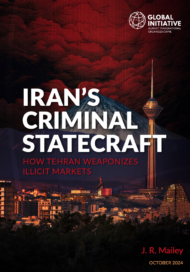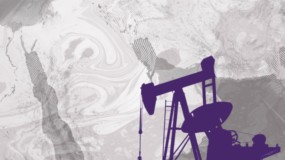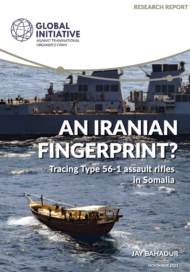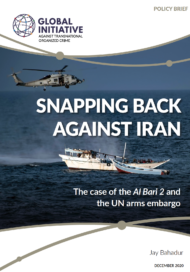Posted on 30 Oct 2024
Over the past decade, Iran has turned to criminal markets as a strategic tool to pursue its geopolitical goals. Isolated by international sanctions, Iran has forged extensive ties with criminal networks across the globe to fund armed groups, procure materials for its nuclear program, and evade sanctions.
This report uncovers how Iran’s proxies, such as Hezbollah and militias in Iraq, Syria, Yemen, Lebanon and Palestine are critical to Tehran’s influence. Iran supplies these groups with weapons, training, and funds, while criminal networks help smuggle oil, launder money, and move illicit goods across borders. This strategy has enabled Iran to weaken its adversaries without engaging in direct military confrontation.
One of the most striking findings of the report is how Iran’s use of criminal proxies allows it to maintain plausible deniability. Tehran’s regime has relied on these illicit actors to conduct operations ranging from assassinations and abductions of critics to sabotage and terror attacks—all while skirting direct accountability.
The report also highlights how criminal networks have been key to helping Iran circumvent widespread sanctions. By collaborating with middlemen and transnational crime organizations, Iran has continued to smuggle its oil and accumulate foreign currency. These criminal partnerships have enabled Tehran to access global markets, finance proxy wars, and strengthen its military capabilities through illicit means.
The study provides detailed case studies on Iran’s operations and offers a range of recommendations to counter Tehran’s criminal statecraft. By identifying pressure points and vulnerabilities within these illicit networks, the report outlines steps that can be taken to expose and disrupt Iran’s activities.




